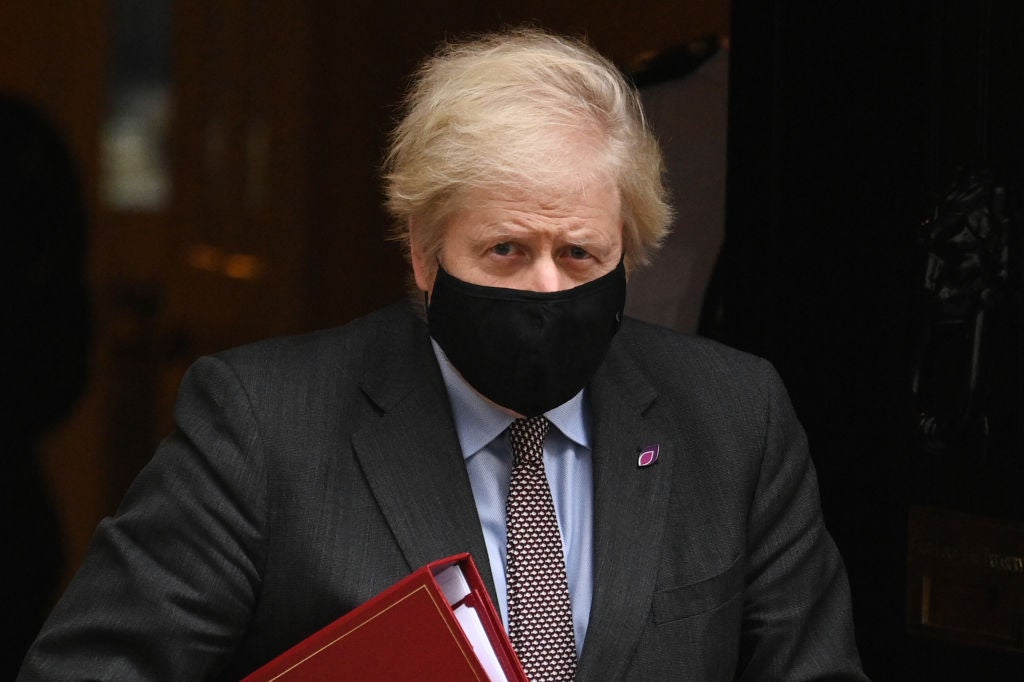Are we seeing a new Boris Johnson? Tory MPs seem to think so
A slow but smooth return to something close to normal by the summer, coupled with the successful vaccination programme, is what the prime minister needs, writes Andrew Grice


Have we got a new Boris? Some Conservative MPs and Boris Johnson allies are saying that – in private, at least – after some revealing decisions in the past week.
They hailed the government’s remarkably restrained reaction to the EU’s incendiary threat to halt vaccine exports from Ireland to Northern Ireland. They also pointed to a last-minute change which saw a Brexiteer political adviser, David Frost, lose his next job as national security adviser to a civil servant.
At Westminster, it is being called the “non-Dom era” – a reference to the absence from Downing Street of Dominic Cummings, the turbulent adviser who left last November.
Tory insiders believe the pugilistic Cummings and his Vote Leave cabal would have ensured Johnson “went nuclear” over the European Commission’s foolish but hastily abandoned plan to suspend part of the Northern Ireland Protocol. Indeed, when they ruled the No 10 roost, Johnson threatened to break international law by passing legislation to override the protocol.
His move was widely condemned and backfired spectacularly. It didn’t force EU concessions in the trade negotiations, as his aides claimed. Brussels officials told me it destroyed trust, making the EU more determined to drive a hard bargain and nail down “level playing field” guarantees.
Johnson’s conciliatory response to the EU’s crass error will achieve more than throwing his toys out of the pram would have done. The EU is on the defensive and will have to make at least some concessions to smooth trade between Great Britain and Northern Ireland. So restraint was good politics.
Frost, who will now be Johnson’s adviser on international policy, would surely have taken up the plum national security post if Cummings were still in charge, even though Frost had no security experience. Symbolically, the job instead went to Stephen Lovegrove, permanent secretary at the Ministry of Defence. The civil service was in Cummings’s crosshairs but the new Downing Street regime is rightly trying to work with it rather than against it.
Dan Rosenfield, a former Treasury official who has taken over Cummings’s de facto role as chief of staff, is being credited in Toryland for the new approach, along with Allegra Stratton, Johnson’s new press secretary and a former journalist. “The grown-ups are in charge now,” one former minister told me. “It feels very different.”
Tories also note Johnson’s more cautious approach to easing lockdown and his determination to under-promise and over-deliver in the Covid-19 vaccine rollout – the very opposite of his bouncy but misplaced optimism on too many occasions during the pandemic.
The vaccination programme has been a booster for the morale of grumpy Tory MPs. But there is now a problem of success: the awkward squad is arguing that restrictions can now be eased more quickly.
Some of the 70 lockdown sceptics in the Covid Recovery Group are champing at the bit for the relaxation to start on 8 March, for the reopening of schools to happen before that date and for all the curbs to be ended by May. These demands are unrealistic; with new coronavirus cases still running at 20,000 a day, scientific advisers believe a hasty lifting would result in another surge in cases and potentially a fourth lockdown in England.
Johnson knows he cannot afford yet another damaging retreat. His instinct is to relax the restrictions slowly and cautiously, reviewing progress every two weeks. But his plan to retain a national system rather than return to regional tiers will deepen his rift with Tory MPs representing low-risk areas, who will not want to wait for high-risk areas to catch up.
At previous stages of the pandemic, Johnson has been too willing to appease his party’s lockdown sceptics. He loves to be loved, and tell people what they want to hear – a weakness for a leader facing such unenviable choices. Ominous signals are being sent to these backbenchers that he is on their side.
To avoid repeating past mistakes of lifting restrictions too quickly, Johnson will have to stand up to and alienate the sceptics and their cheerleaders in the Tory-supporting press. But he would have public opinion on his side; most people are cautious about easing lockdown.
If Johnson gets this right, he might yet confound his critics. A slow but smooth return to something close to normal by the summer, coupled with the successful vaccination programme, would divert some attention from his many mistakes during the pandemic. The critics won’t forgive him, but the voters might.
But to get there, he will have to face down a noisy, aggressive bunch of Tory MPs. His new “non-Dom” team is doing well but is about to be tested to the limit.






Join our commenting forum
Join thought-provoking conversations, follow other Independent readers and see their replies
Comments